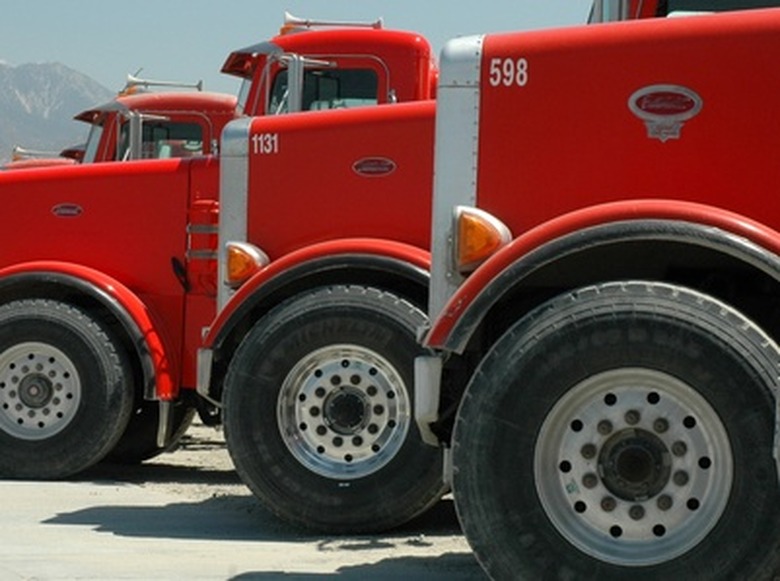Uses Of Diesel Oil
Petroleum processors derive a number of different fuels from each barrel of crude oil. In addition to gasoline and heating oil, petroleum refinement also results in a lighter, low-sulfur oil known as diesel. The U.S. Energy Information Administration estimates that diesel provides as much as 7 percent of the energy used in the U.S. and is the second most popular fuel source after gasoline.
Vehicles
Vehicles
According to the U.S. Energy Information Administration, or EIA, diesel-powered vehicles generate 20 to 40 percent better fuel economy than gas-powered models. Diesel also poses a reduced risk of fire during an accident and produces fewer emissions than gas. Reduced emissions help to clear the air and also slow the environmental effects of global warming. Many commercial vehicle fleets run on diesel, as do most of the nation's school buses and public transit vehicles.
Heavy Equipment
Heavy Equipment
More than two-thirds of the farm equipment in the U.S. run on diesel according to the EIA. Diesel-powered tractors, combines and other machines help farmers produce food and manage large parcels of land more effectively.
Many types of construction equipment also rely on diesel, both because of its improved efficiency and its ability to power heavy-duty machines. The EIA estimates that a gallon of diesel oil provides up to 30 percent more energy than a gallon of gasoline, allowing diesel to power large machines like cranes or backhoes more effectively.
Power Generation
Power Generation
Diesel generators produce electricity that can be used to power lights, equipment or other systems. Many organizations and businesses rely on diesel-powered generators for back-up power during outages. These generators also play an important role during emergencies, when they keep hospitals, fire stations and other vital facilities running. In remote areas, a diesel generator provides electricity to people who otherwise would have to do without this modern convenience.
Military Operations
Military Operations
The U.S. military relies on diesel oil to power tanks, trucks and other vehicles at home and abroad. According to the EIA, diesel is less flammable and less likely to explode than traditional gasoline. Using diesel in military vehicles protects troops and personnel from injury and reduces the risk and intensity of fire or explosions during combat. Diesel-powered vehicles also offer a high level of reliability and are not as subject to stalling as a gasoline-powered vessel.
References
Cite This Article
MLA
Beach, Emily. "Uses Of Diesel Oil" sciencing.com, https://www.sciencing.com/uses-diesel-oil-6897342/. 24 April 2017.
APA
Beach, Emily. (2017, April 24). Uses Of Diesel Oil. sciencing.com. Retrieved from https://www.sciencing.com/uses-diesel-oil-6897342/
Chicago
Beach, Emily. Uses Of Diesel Oil last modified March 24, 2022. https://www.sciencing.com/uses-diesel-oil-6897342/
